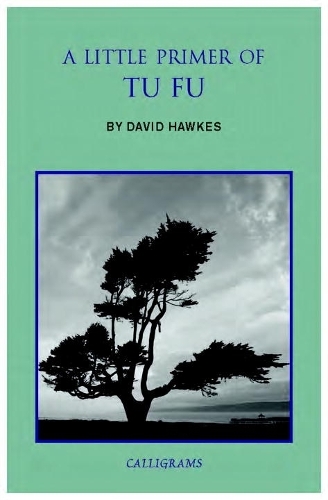
A Little Primer Of Tu Fu
(Paperback, Main)
Publishing Details
A Little Primer Of Tu Fu
By (Author) David Hawkes
New York Review Books
New York Review Books
15th March 2016
18th August 2016
Main
United States
Classifications
Tertiary Education
Non Fiction
Literary studies: poetry and poets
Literary studies: ancient, classical and medieval
895.113
Physical Properties
Paperback
290
Width 142mm, Height 215mm, Spine 15mm
388g
Description
The deepest and most varied of the Tang Dynasty poets, Tu Fu (Du Fu) is, in the words of David Hinton, the "first complete poetic sensibility in Chinese literature." First published in 1967, this book presents thirty-five Chinese poems with a pinyin transliteration, a character-by-character translation, and commentaries on the subject, form, and historical background. Hawkes gives us a nuts-and-bolts account of how the poems of one of the world's greatest poets are constructed. It's an irresistible challenge for readers to invent their own translations.
Reviews
"Every Anglophone reader interested in the working mechanics behind Chinese poetry will find these texts to be endless resources worth returning to again and again...Although aimed as being introductory in nature, both A Little Primer of Tu Fu and Chinese Poetic Writing nonetheless forefront the presentation of the poem in Chinese characters, clearly emphasizing the importance of the original language in fully understanding any poetry." Rain Taxi
Tu Fu is...the greatest non-epic, non-dramatic poet who has survived in any language.Kenneth Rexroth
Author Bio
Tu Fu (712-770) lived during a time when the Tang Dynasty was wracked by war and mass dislocation and starvation. A minor bureaucrat, a refugee, and a political exile, he wavered between the Confucian ideal of serving his country and the Taoist dream of a hermitage in nature. He lived both. David Hawkes (1923-2009) was for many years a Professor of Chinese and later a Research Fellow at Oxford University. His translations included the 2nd- century anthology, The Songs of the South, and a magisterial multi-volume version of Cao Xueqin's 18th-century novel, The Story of the Stone (The Dream of the Red Chamber), considered by many to be the greatest translation into English of Chinese prose.
